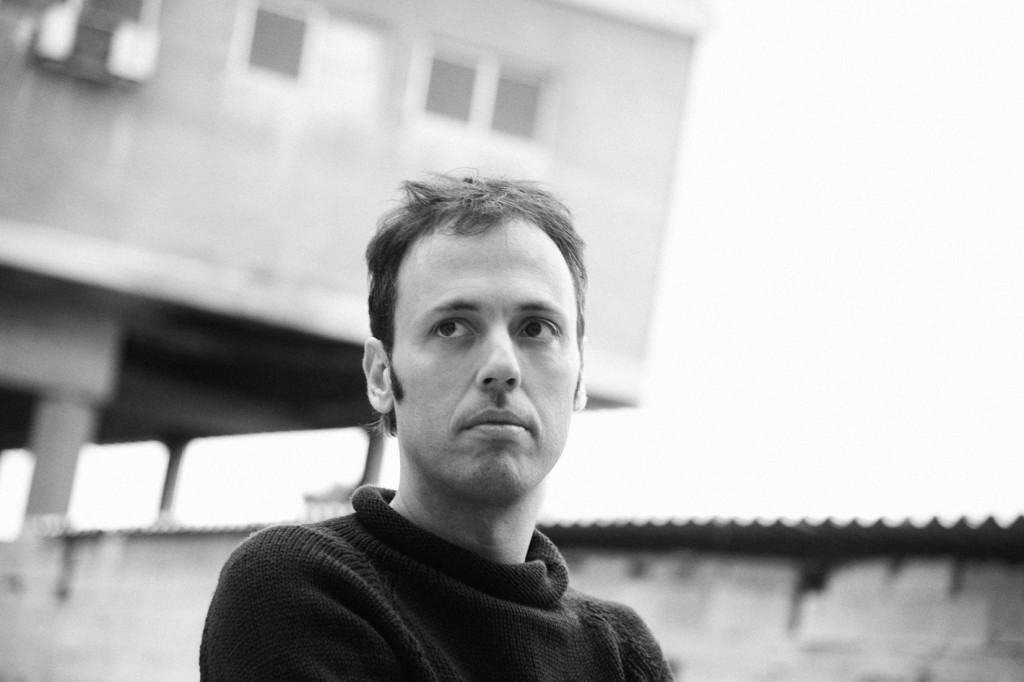
In Tel Aviv, where the pace is fast and memory short, Itay Mautner, co-founder of Pecha Kucha and ARTLV, is a strong presence on the cultural scene. Yet the artistic director of the Jerusalem Season of Culture, a new initiative of the Schusterman Foundation to be launched in 2011, has deep cultural and personal roots in Jerusalem. Mautner met with Midnight East to talk about the vision and plans for the new cultural season.
Ayelet Dekel: As artistic director for this project do you feel as if you have a kind of new, undefined toy to play with?
Itay Mautner: This new toy is 5,000 years old. In many respects I feel that I am it’s toy. As someone who was born and grew up in Jerusalem…I understand the extent to which Jerusalem itself is greater, has existed longer, and is more meaningful than anything that any individual could try to do. With all the love, daring, enthusiasm we bring to what we are doing now in the city, the city teaches an important lesson in tolerance, modesty, in taking your time and listening to one another.
AD: Tolerance and listening to others are qualities that many people say are missing today in Jerusalem.
IM: That’s true, I agree.
AD: Then why isn’t it happening, why isn’t this lesson of tolerance coming across?
IM: I think that to be the potential to learn this lesson exists, but in order to do that you have to let go of your self pride for a moment, and dare to think differently. What we are trying to do in 2011 is to create the conditions which will make it possible for people and artists to think differently.
AD: You are very identified for me with Tel Aviv culture and I am wondering if you feel that you approach this project in Jerusalem differently.
IM: I have to approach it differently. It’s a very complex process because it is connected to many private memories and many flashbacks. This city is one big flashback. This is where the my first kiss took place, or more accurately, where my first kiss was refused – I did talk her into it later on. The first cultural event I ever saw that really influenced me; no one will remember this, the Phenomena Festival, it was the first performing arts festival, organized by Mario Kotliar, who founded the School of Visual Theater [in 1986 with Hadass Ophrat]. It was mind-blowing.
One of the first things I did before we arrived at any conclusions or created a plan or understood what we wanted to do was meet with everyone doing or is active involved in cultural life in Jerusalem. Simply mapping and listening.
The real knowledge of what is cultural life in Jerusalem is with them not me. I can help, improve, and advise. But the knowledge is there with the people who are active: institutions, entrepreneurs, artists.
After a year of listening we understood that there is a mass we can work with and that remains for us is to pile them up into one entity, help, improve, advise, add some spices of our own and tell the whole world about it.
We’re not building a cultural season from scratch. Most of it, about 70% is based on existing things that already exist.
AD: I love Jerusalem and visit often, so I am well aware that there is a lot of cultural activity, but I feel that somehow the word does not get out.
IM: I think it’s very much connected to that modesty we were discussing because the same amount and kind of cultural activity that takes place in Jerusalem if it were happening in Tel Aviv would make much more noise. The same thing, without changing anything – why? Because here they would know how to shout it out and let it create an echo. There’s a lot of ripple effect in Tel Aviv.
In Jerusalem, as they say etzlenu bakerem (by us, in the Kerem): Everyone is making his own Shabbes.” Each person is creating baktana (Hebrew slang: on a small scale), if you just connect them without doing anything else…We’ll do more of course, but just putting this and this and this together…You see: look how much there is! It was just scattered around nobody put them together. Suddenly – eh! Now, [he takes the brown sugar packet from one end of the container and twists it with the white sugar packet] we take this and this and create something completely new.
AD: Can you give me an example?
IM: We are now checking out some things in 2010 for 2011…Under the Mountain [at the Israel Festival] is a good example.
Look at what happened here. Musrara Mix exists; the Videodance Festival exists and was moved to Jerusalem, they were supposed to take place almost exactly at the same time, with a difference of a few days. They are different in artistic terms, but from a bird’s eye view, they speak to the same audience. So why compete? So we took these and connected them under the name – under the mountain and connected it to the Israel Festival…and didn’t touch the content at all. We helped a bit, but it’s theirs.
AD: Creating a connection that enhances both events.
IM: Yes, absolutely. The most important thing…what are we trying to do? We are trying to reach the point where Jerusalem has a cultural backbone. When they celebrated Tel Aviv’s centennial and I was involved in the planning, it was very clear what would compose the content of these events. They would be pluralistic and a lot of nightlife and hectic and young people… sababa [Hebrew: it’s all good, ok] because this is the DNA of the city.
Now when you come to Jerusalem you have a mish mash. They call it meurav yerushalmi [Hebrew: Jerusalem mixed grill]. Let’s try to create a cultural backbone for Jerusalem with the people who create culture in Jerusalem.
Let’s try to understand what makes this Jerusalem, and this – not Jerusalem.
Because what’s the point of doing something in Jerusalem that you can see tomorrow in Tel Aviv? You’ll see it in Tel Aviv, because you live there. What is the added value to an event in Jerusalem that makes it different from everything else?
AD: That’s the question, the proof of the pudding.
IM: I think that we will prove it. It takes time.
AD: Do you have something in mind when you think of this difference, can you define it?
IM: There are three elements that speak of culture in Jerusalem. We’ll set aside the question of “what is culture”…When you ask what is Jerusalem culture, you encounter three important words. One of the words is inspiration.
There is something in this city, in the architecture, tradition, history, the first poet ever and the first warrior ever, the alleys, the trees…there is something there that awakens inspiration. We handed out blank notebooks to friends with “in case inspiration strikes” written on the cover because sometimes it can happen; it can strike suddenly, inspiration. It doesn’t happen a lot in Hamasger Street, you know what I mean…Maybe a different kind of inspiration, like the Allenby [Street] of Gadi Taub.
Another word, that we intentionally don’t translate to Hebrew because it’s tricky, is “Ruah”. Ruah can be ruah hakodesh, the Humanities [Hebrew: mada’ei haruach, literally the science of the spirit], the human spirit… could be the nice wind that you have in Jerusalem that time of year. Could be spirit, could be spirituality…And if you want to have a season of culture in Jerusalem it must include these elements.
And perhaps the last word…multiculturalism. Keren from our amuta is originally from Philly. She sat a year and a half ago in the shouk [market in Jerusalem] and saw the tzlilei haoud a Yemenite musical group, performing at night near the stands. She sat with the rapper Matisyahu, Shaanan Street (of the Dag Nachash band) the Palestinian author Said Kashua, and a Japanese diplomat. This mix can only happen in Jerusalem. Arabs, Jews, diplomats… its so unique this multiculturalism that we always try to escape from…you know, if you sit on Rothschild Boulevard [in Tel Aviv] on the bench near the kiosk, the people who walk by will be almost the same, except the religious people of Sheinkin, they probably have the same CDs at home, they have they same “route” on the internet, and it’s cool, it’s good, I’m not criticizing, it’s just something different.
These three words inspiration, ruah and multiculturalism – lead us to the Jerusalem flavor we’re talking about.
AD: And what about the Orthodox community?
IM: They’re part of it, and the Arab community is part of it. When you talk about spirit, you talk about Tikkun Leil Shavuot [the Jewish custom of staying up all night studying to commemorate the giving of the Torah on the eve of Shavuot] but also the fast of Ramadan.
AD: What do you consider the greatest challenge in this project?
IM: The most challenging part is to do what we are doing now: to find the expression, to crack the code of defining Jerusalem culture. If in another 5 years we can set the full range of cultural activity in Jerusalem against the cultural activity of Tel Aviv and Madrid, NY, Australia wherever – and you can see the difference between them, you can see the DNA, the backbone – then we will have succeeded.
AYELET DEKEL

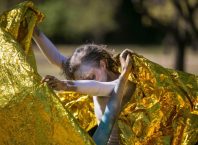
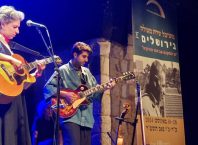
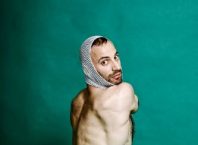
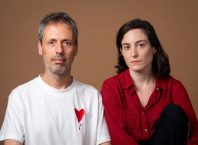
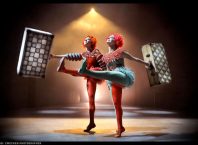
Comments are closed.